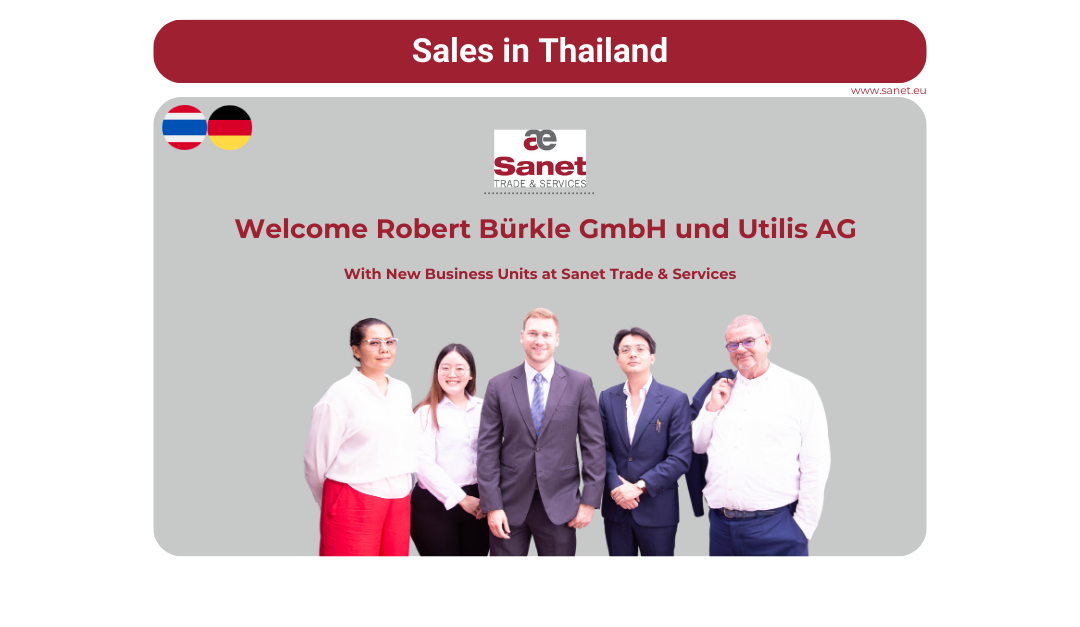
Sales in Thailand – Robert Bürkle and UTILIS AG new Sanet partners
Now is the time to prepare for the success of 2024. New markets hedge the risk of the weakening economy in Germany and the uncertain times in many countries of the world.

Now is the time to prepare for the success of 2024. New markets hedge the risk of the weakening economy in Germany and the uncertain times in many countries of the world.
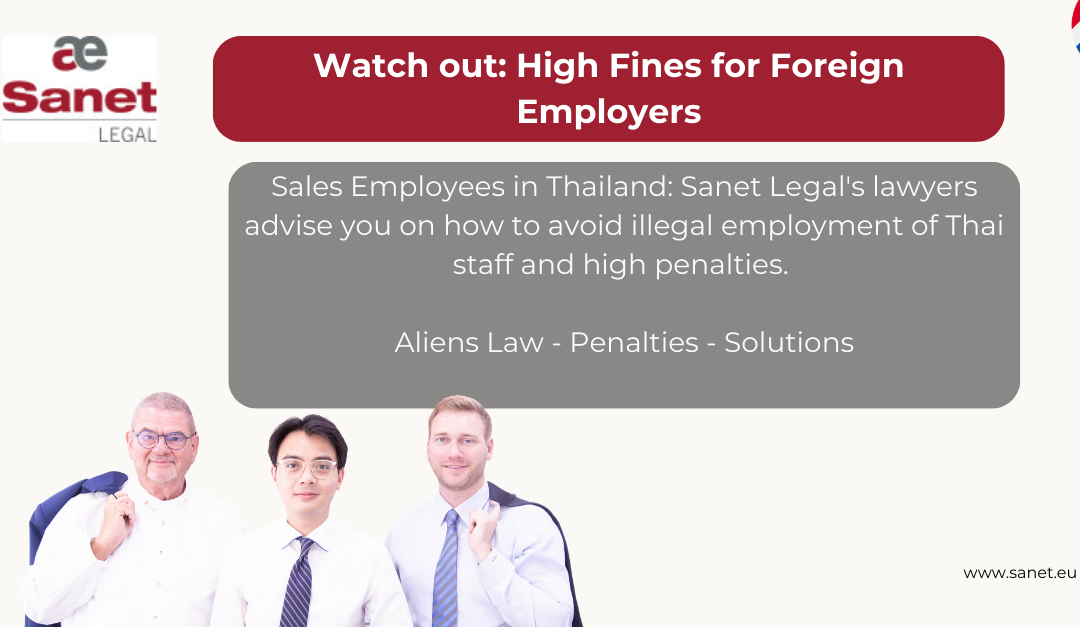
Having their own employees in Thailand seems to be the cheap and direct way to sales and service in Thailand for many foreign companies. But beware: The law prohibits foreigners from selling their products or even providing consulting or technical services through by themselves or through Thai employees. There is the risk of imprisonment, fines of up to USD15,000 per day and corporate tax for both business owners and employees.
The Thai Foreign Business Act protects Thai traders and marketers from foreign competition. Those who use their own employees to sell their products or services in Thailand turn them into an (illegal) permanent establishment. Draconian penalties are imposed for violating or circumventing the law. This also includes employing sales or service staff through personnel service providers or law firms. Often, the latter themselves are unaware of the risks they expose themselves and their clients through a “payroll” or “staffing service” ” for illegal activities of foreign customers.
In this article, we explain exactly how to recognize a punishable “bogus employment” and how to do it right.
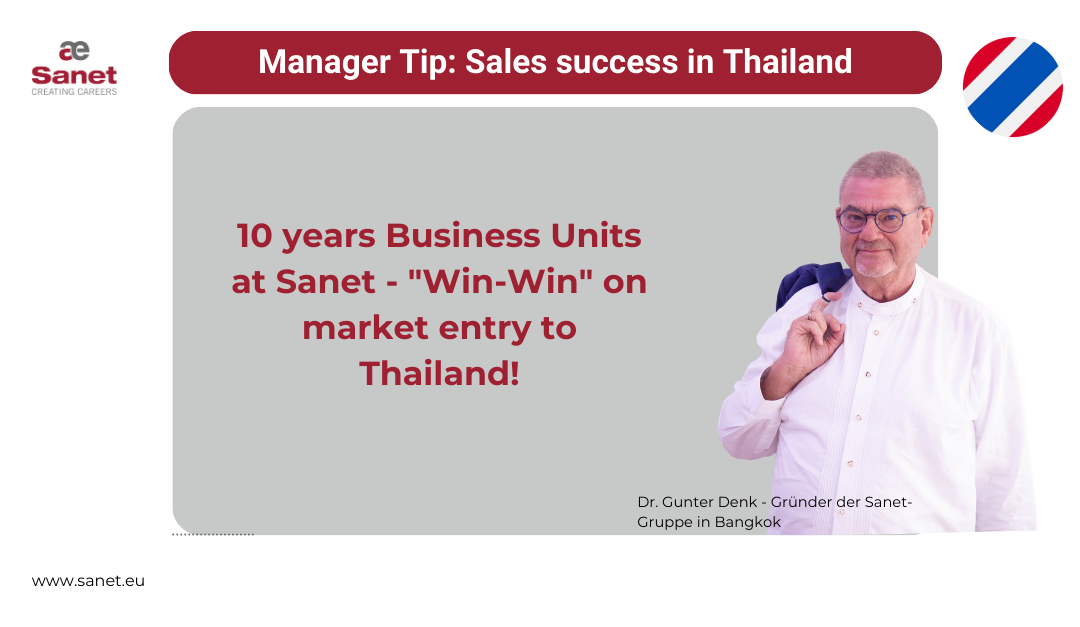
This year, when Sanet celebrates the 10th anniversary of its “Business Unit” (BU), it will look back on the support it provided to 25 mostly international large or medium-sized private companies when they entered the Thai market. Sanet founder Dr. Gunter Denk resumes what still convinces many companies to start sales and service in Thailand through a “BU” at Sanet.
“After having spent 25 years as an entrepreneur of a manufacturing company with strong internationalization, I knew what makes entrepreneurs tick when expanding into new markets,” he begins his description of how to safely enter the Thai market through a ” Business Unit.”
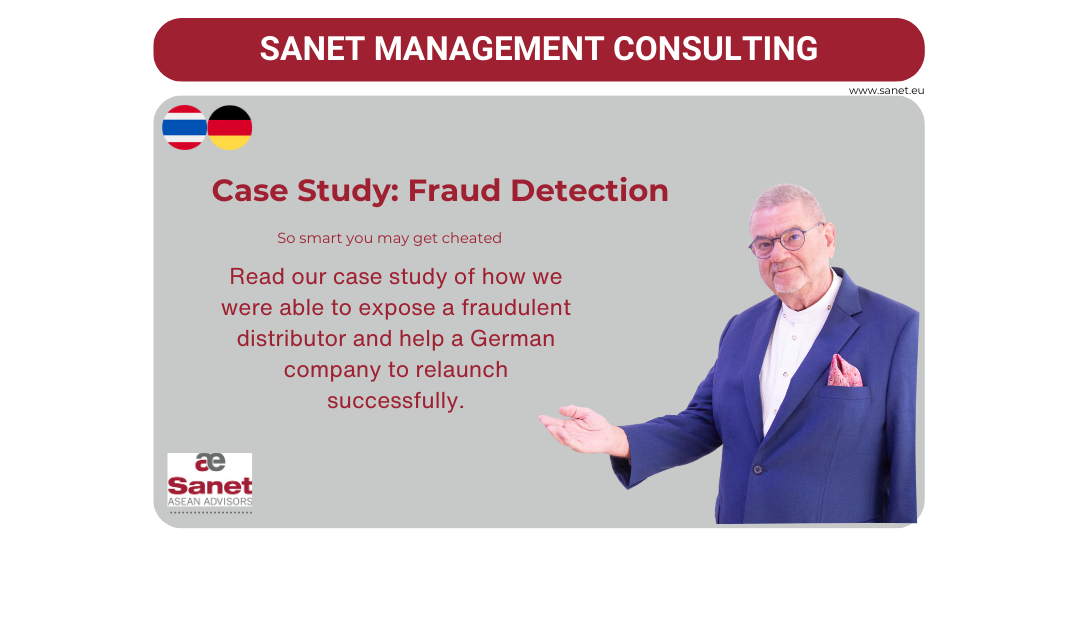
A highly specialized German company in plastic materials has a global market share of 14%. But in Thailand, despite preferential prices and fair margins offered by the partner, the market share remains at only 3%. This is something the management does not want to accept any longer. They hired Sanet to investigate a possible fraud by the distributor.
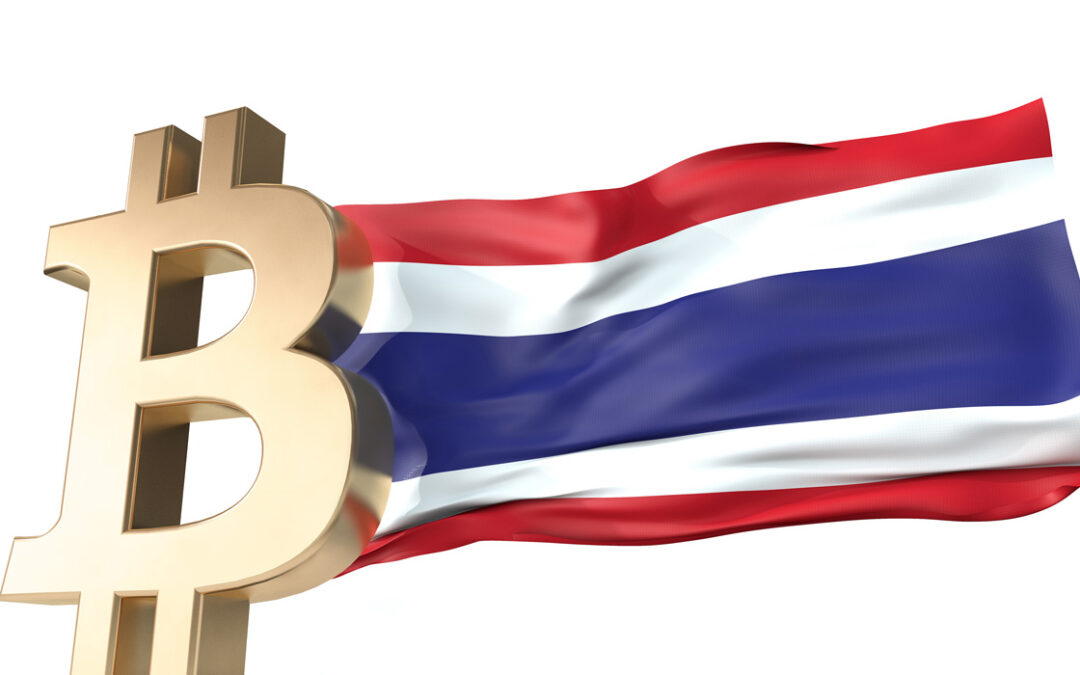
In Formula 1, one speaks of the best “Overall Package” in a race car as a decisive prerequisite of championship-winning performance. In other words, it’s not simply a question of the driver, the best chassis, most powerful motor or the most suitable strategy in a race. Rather, everything has to “fit” in order to bring a team right to the front. It is similar in the economy.